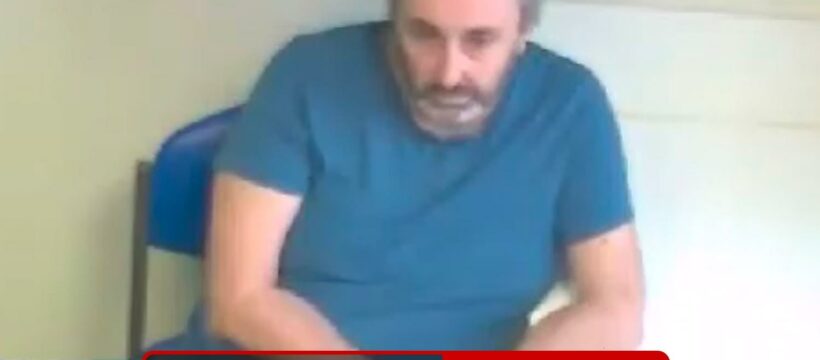EVIL killer Ian Stewart gave away key clues revealing he was guilty of murdering his first wife, a top crime expert has revealed.
Stewart, 61, killed wife Diane, 47, in their home in Bassingbourn, Cambs, in 2010 – six year's before he killed vulnerable children's author Helen Bailey.
The deceitful monster was yesterday convicted of murdering Diane – after "fooling" medics into believing she had suffered a sudden unexplained death through epilepsy.
Now, a leading crime expert has revealed three key signs that Stewart was guilty in the weeks leading up to his Huntingdon Crown Court trial.
Criminology Professor David Wilson said the first clue was Stewart's "verbal staging behaviour", in which a killer fakes a narrative he hopes cops will accept.
In a chilling 999 call, Stewart tells cops that Diane "had a fit" and he "thinks she has died".
And in footage taken inside a police car, double killer Stewart gasps "you're joking" and smirks after cops say he's being held for murdering his first wife.
Prof. Wilson – Professor Emeritus of Criminology at Birmingham City University – said: "What we see when he calls 999, is he engages in a lot of verbal staging behaviour.
Most read in The Sun
PREM STAR'S CAT ATTACKWest Ham's Kurt Zouma KICKS & slaps his pet cat in horrific video
The big travel rule change in place from TOMORROW – in time for half term hols
EastEnders' John Altman and Steve McFadden attend Leonard Fenton's funeral
I cried when docs said I was having a fifth boy, reveals Danielle Lloyd
"He's trying to give them a narrative that he hopes they accept.
"That repeats itself when he is immediately brought out of custody and he says 'you are joking'. He's getting desperate.
"He would have known full well what he is being charged with. He is not an idiot."
The second clue was Stewart's aggression with the police.
Prof. Wilson said he thought Stewart's chat with cops in the police car was "more revealing" than separate footage of a police interview.
He added: "We get to see his aggression. Even though he was contained in the police car with cops, we saw he was intimidating.
"The gloves were off."
His penchant for violence is also seen in a disturbing police interview.
BLACK WIDOWER
While being quizzed by a female cop, Stewart shrugged as he was asked about his wife's death before saying: "Epilepsy. Well, that's what the doctors told me."
And when asked what he did when Diane fell unconscious and whether he checked she was breathing, he shrugs again and plays with his beard.
Prof Wilson said: "You get to see some of the underlying aggression even though it is controlled.
"There was no sense of rapport being built between Stewart and the interrogator.
"You get the impression that within his personality he wants to be dominant – and you can be dominant by how you chose to speak, or choose not to.
"She's a woman. He doesn't want to talk to her. He thinks it is inappropriate that a woman was interviewing him and asking him questions.
"He was the perfect example of the silent and uncommunicative perpetrator.
And the third and final clue that gave away Stewart's guilt was his lack of remorse.
Prof. Wilson added: "I counted around 21 questions to which there was no reply.
"It is really only in the movies or in TV drama that a perpetrator says 'you're bang to rights, I did it'.
There is no remorse. There is no attempt to express regret. He simply is disinterested and looking around himself.
"That is so rare it would be suspicious if they admitted it. They will more commonly say no comment.
"In Stewart, he has known for years that he killed his wife, it was only a matter of time that the criminal justice system caught up with him.
"He believes he didn't do it even though [deep down] he knows he did – he chooses not to accept it.
"There is no remorse. There is no attempt to express regret. He simply is disinterested and looking around himself.
"The people you have to feel sorry for are his two children who survived.
"They have to come to terms with the fact that their father killed their mother and they are owed an explanation.
"In Stewart, he has known for years that he killed his wife, it was only a matter of time that the criminal justice system caught up with him. He believes he didn't do it even though he knows he did – he chooses not to know.
"He wants to retain the power. The next change is to acknowledge his guilt for his children."
Source: Read Full Article








